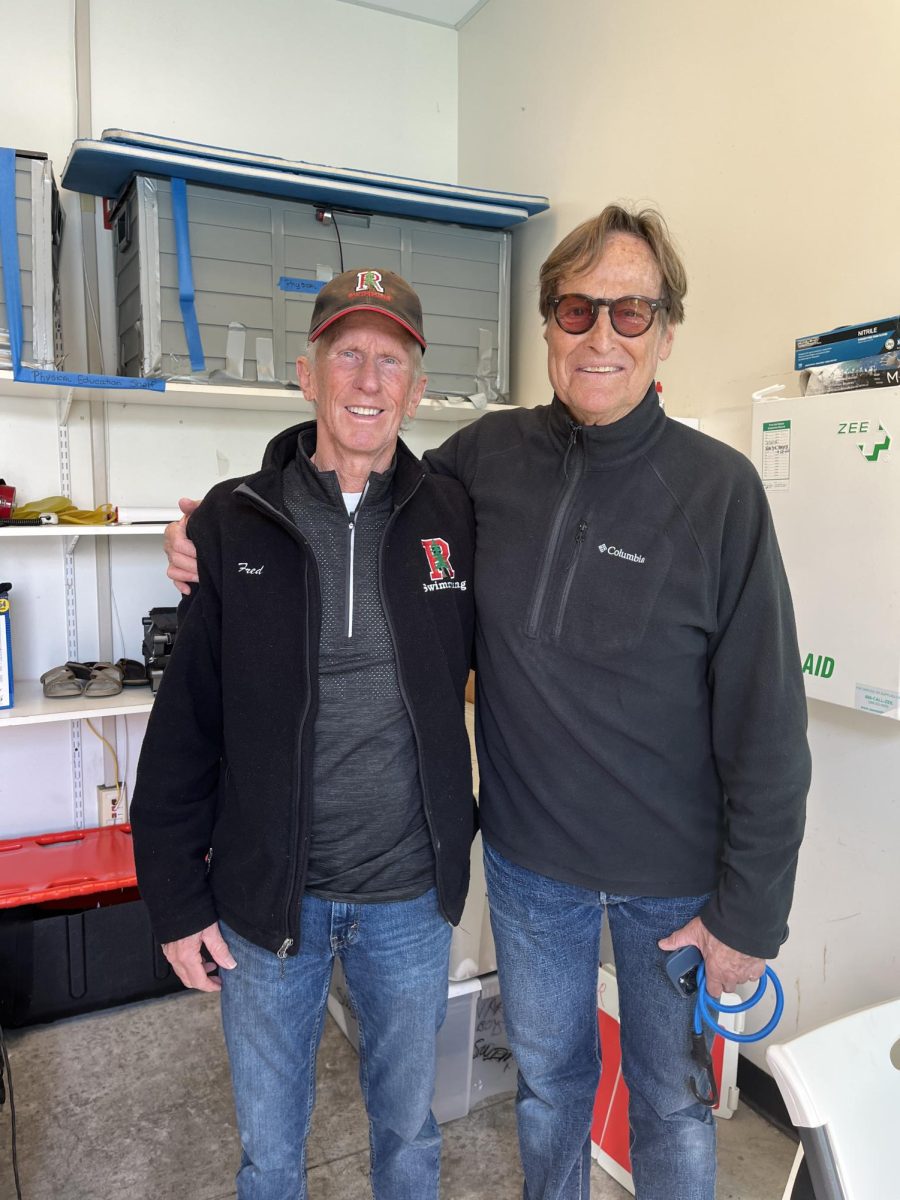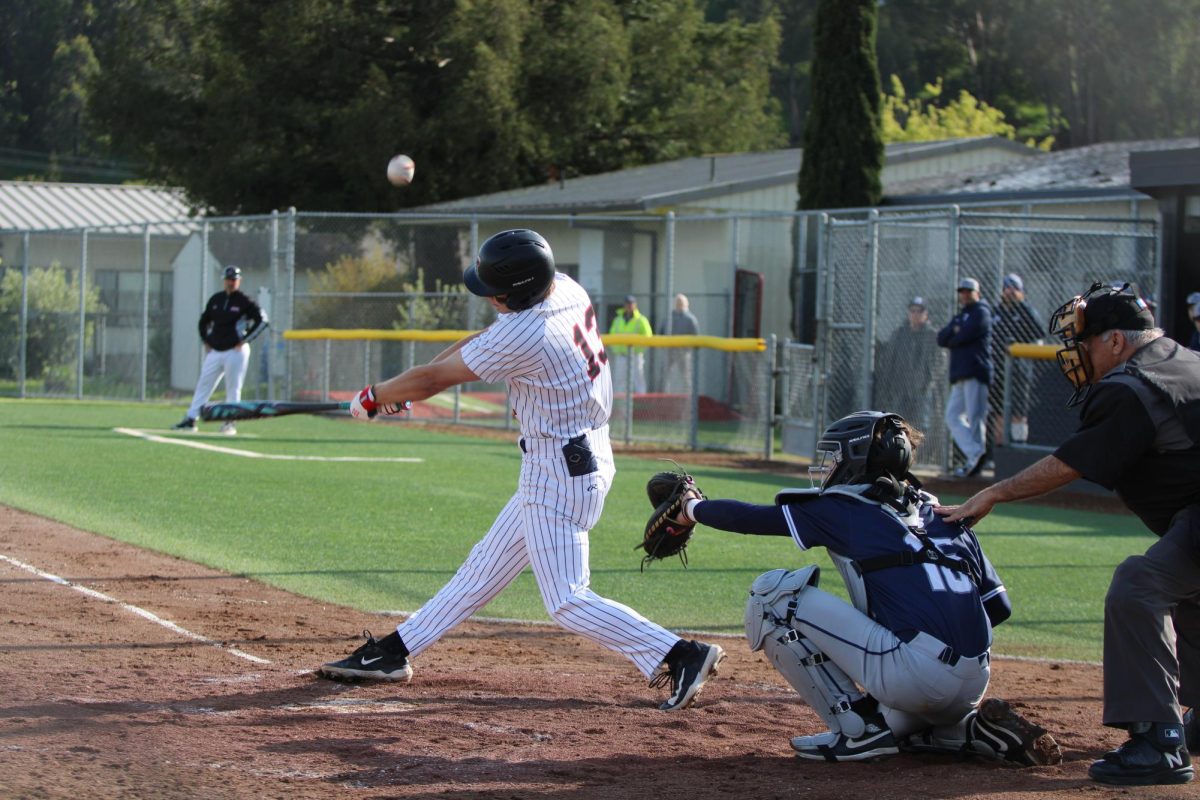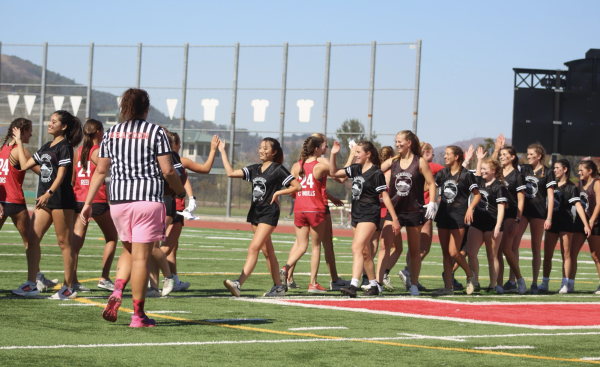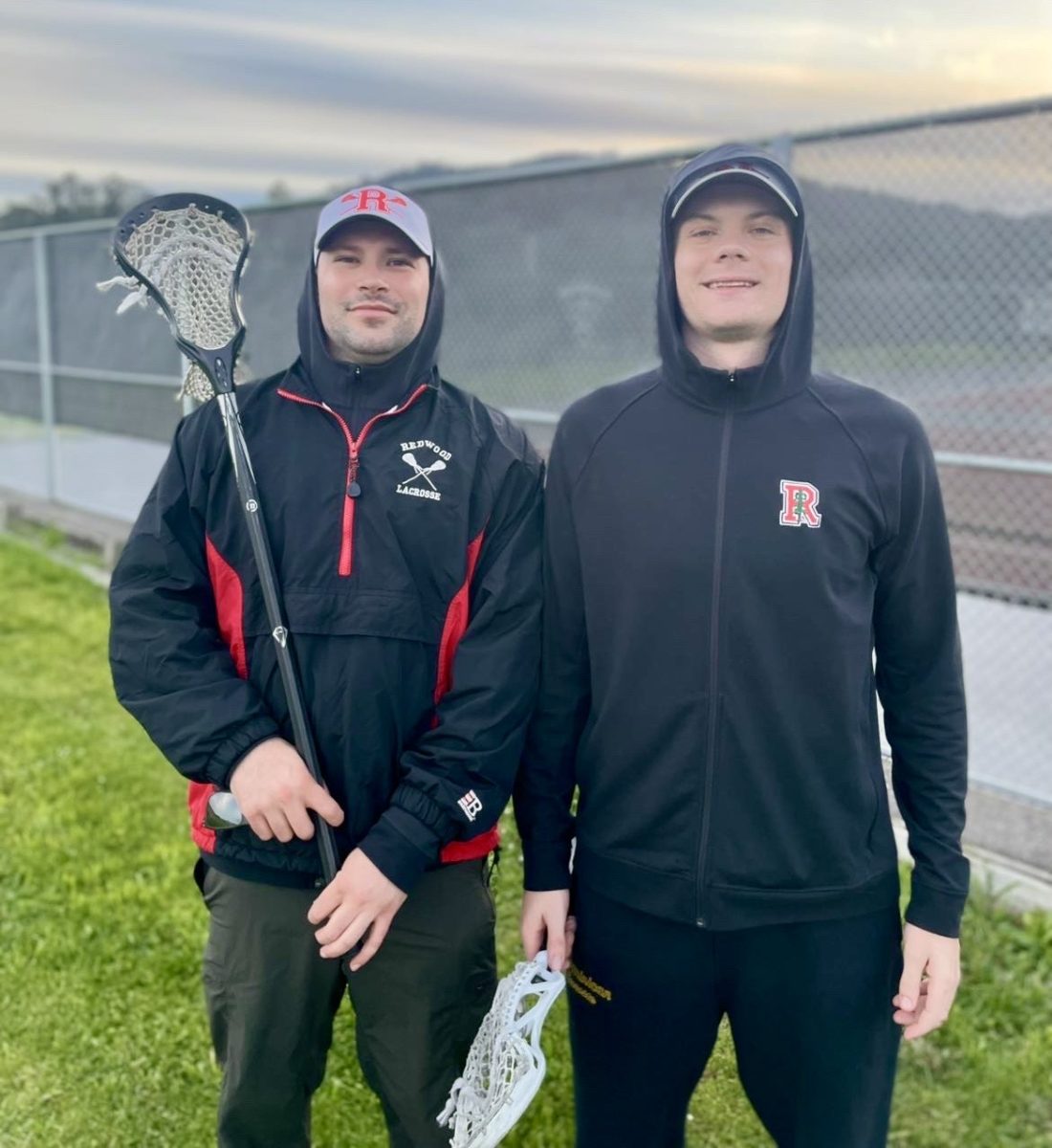Circling his arms around his shoulders, stretching his calves out against the fence and swinging his hips from side to side, senior shortstop Dionathan (Dio) Cornet prepares for his first American high school varsity baseball game.
There is a low buzz in the bleachers as the fans anticipate the start of the game. To the left of them, in the dugout, the players huddle together. Although it is normal for players to get nervous before a game, pre-game stress is not Cornet’s only challenge; he is a virtual stranger to the United States and is still adapting to a new country.
Cornet moved to the United States from Aruba, an island off of Venezuela, in late August. He is still learning to adjust to American culture and communicate with his peers. The language difference has proved to be an especially significant barrier.

When Cornet first arrived, he moved in with his uncle, but said that he finds it difficult not having a lot of his family with him. Cornet’s uncle is currently in the Dominican Republic for work, so for the past few months Cornet has been staying with different host families.
“It’s hard here because I am alone. I don’t have my mom or my friends. I am living with a host family. So, I don’t have the people I always deal with everyday. But, I’m getting accustomed to it,” Cornet said.
Senior first baseman Luke Zlatunich explained that Cornet’s teammates have made his transition significantly easier.
“Our team has become his family because we see him everyday, so we are willing to talk to him,” Zlatunich said.
According to Zlatunich, Cornet’s easygoing personality has improved their team dynamic.
“He’s super relaxed on the field which is really nice. You can just watch him and he’s messing around most of the time. It’s good for our team though because we play a lot better when we are relaxed,” Zlatunich said.
Cornet began playing baseball at the age of four, ever since watching Sammy Sosa, a former all-star right fielder from the Dominican Republic play.
“Every day I would go to the field and play around the street with the boys in Aruba. Then we’d go to school, and after school four or five guys would go out and play until night time,” Cornet said.

It wasn’t until he grew older and went on a travel tournament to Puerto Rico that Cornet realized his passion for the sport and his eagerness to continue.
“A scout came to me and said he liked seeing me play and that was a motivation for me to continue. When I was 13 or 14, I played for fun. But, when he told me that, I really took it to another level, I took it seriously. I kept working and it motivated me to get better,” Cornet said.
Because of Cornet’s self motivation to improve, he’s become a more competitive player on the field.
“He is competitive like most of us, but in a different way. He is really competitive with himself, he expects himself to be really good,” Zlatunich said.

Zlatunich also explained that Cornet has worked to understand the different coaching style here.
“Our baseball coaching philosophy is also a lot different than what he’s used to, so he has to adapt to that as well. [He also has to] adapt to the stricter rules that our coaches put on him and our team,” Zlatunich said.
Redwood’s varsity coach for the past four years, Mike Firenzi, sees the potential in Cornet as well, and has also noticed how welcoming his players are towards Cornet.
“He seems to be a well-liked guy. Everyone on the team likes him. His transition is going better than I expected, [moving] from another country. He seems to be fitting in just fine,” Firenzi said.
Firenzi also explained that Cornet is the first exchange student he has coached, so it’s a new experience for him as well.

According to Firenzi, it’s still the beginning of the season, so there’s a lot of potential for Cornet’s senior year of baseball. Additionally, the coaches have not finalized the line up, but as of right now Cornet has been playing a lot of shortstop, third base and some outfield.
Cornet is willing to put in the extra effort in order to improve his baseball skills despite the long hours and competitiveness present on the varsity team.
“I have to put more work into [baseball] than I would put into baseball in Aruba. But, it’s worth it because I love it,” Cornet said.






